
Electro-Mechanical Certificates
What do electro-mechanical technicians do? Quite simply, they keep companies running. How? By installing, maintaining, and repairing the equipment and machines that are vital to a company’s operations.
Now you can gain hands-on skills and knowledge for an electro-mech career in bite-sized chunks. NWTC is offering short certificates (just 2 to 6 credits each) in specific areas such as PLCs, automation, motors and drives, and more.
What You Need to Know
Who are the certificates for?
- Those currently working in the field who are looking to develop common understandings and troubleshoot together more effectively.
- Mechanically trained people who want skills in electrical and controls technologies such as PLC programming and drives.
- Electrically trained people who want skills in mechanical systems such as pumps, bearings, laser alignment, and vibration analysis.
- Bachelor’s degree program grads who need hands-on skills to complement their knowledge of engineering theory.
- Recent high school grads interested in a different approach to college. Students could work a full-time job while still having time for class and lab.
Where and how will you learn?
Offered on the Green Bay and Marinette campuses, the certificates are truly flexible. Each class is a combination of lecture and labs. You can come to campus for the lecture part or watch it on video. For the lab portion, you will go to the technology center at either campus – anytime the labs are open.
Green Bay Campus Electrical Technology Lab (ET129) Hours:
- Monday through Thursday, 8:00 a.m. – 8:00 p.m.
- Friday, 8:00 a.m. – 3:00 p.m.
- Saturday, 8:00 a.m. – 1:00 p.m.
Marinette Campus Tech Hall (MNTE100) Hours:
- Mondays, 9:30 a.m. to 7:20 p.m.
- Tuesdays, 9:30 a.m. to 2:20 p.m.
- Wednesdays, 1:30 p.m. to 7:20 p.m.
- Thursdays, 9:30 a.m. to 2:20 p.m.
How can the certificate lead to a degree?
All the certificates roll into both the Electro-Mechanical Technology and Automation Engineering Technology programs. That means you can pursue a degree at your own pace. After you complete one certificate, you can come back any time to complete any others (the credits you’ve earned will never expire!).
General Topics
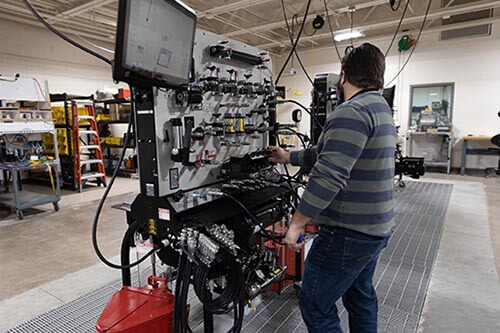
Fluid Power
Get hands-on experience with pneumatics and hydraulics including reading schematics, wiring and plumbing devices, and troubleshooting circuits.
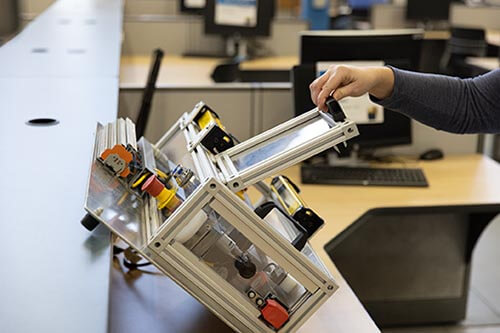
Machine Safety
Practice the proper industrial installation of wiring and devices, and learn about electrical codes and standards, circuit protection, and disconnect installations.
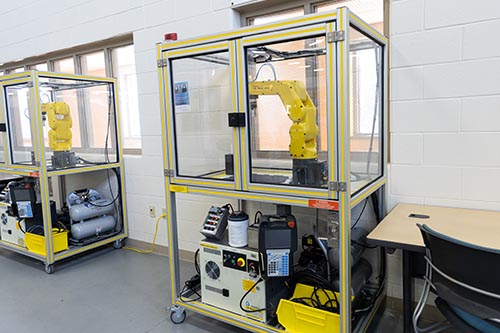
Robotics
Get hands-on experience with the application, operation, programming, and troubleshooting of industrial robots, plus use of robotic vision systems.
Mechanical Focus
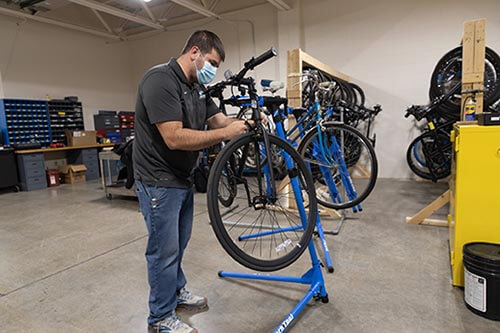
Mechanical Fundamentals
These courses should be taken prior to the Mechanical Technology Intro courses. You'll learn about and practice with tools, gears, belts and chains, fasteners, and pumps.
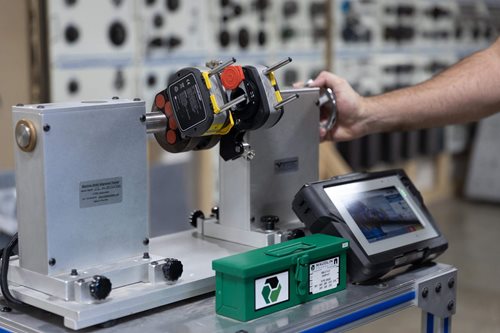
Mechanical Technology Intro
Be sure to complete the Mechanical Fundamentals courses prior to these. Classes cover bearings, laser alignment, data for predictive maintenance systems, and rigging practices.
Automation Focus
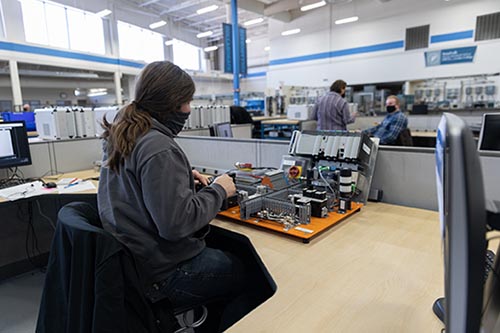
Automation Fundamentals
Take these courses first, and later you'll be able to add certificates in Advanced PLC, Motors and Drives, and/or Controls Systems. You'll get a hands-on introduction to automation devices and PLC programming.
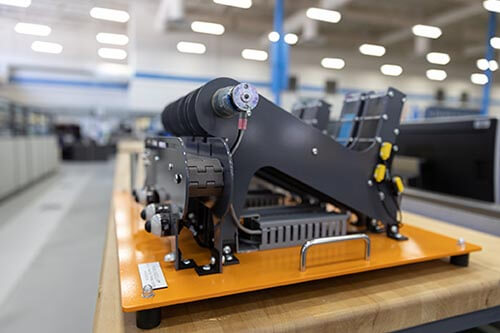
Advanced PLC
Level up your PLC skills once you've completed Automation Fundamentals with this certificate covering PLC programming, Human Machine Interface design, and PLC networking.
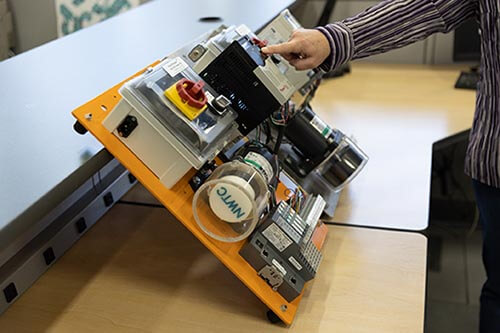
Motors and Drives
Take a deeper dive into electricity and electronics after completing the Automation Fundamentals certificate. Learn how to install, set up, and troubleshoot motors and drives.
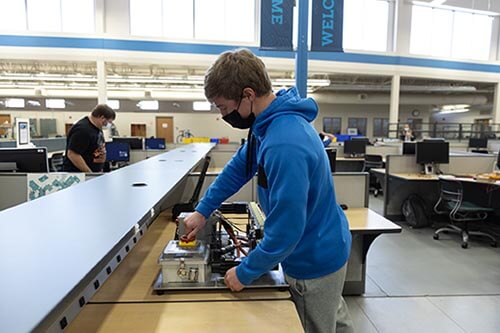
Controls Systems
Advance your controls knowledge once you've completed the Automation Fundamentals certificate. Get a hands-on intro to many controls concepts and systems using both labs and exercises.